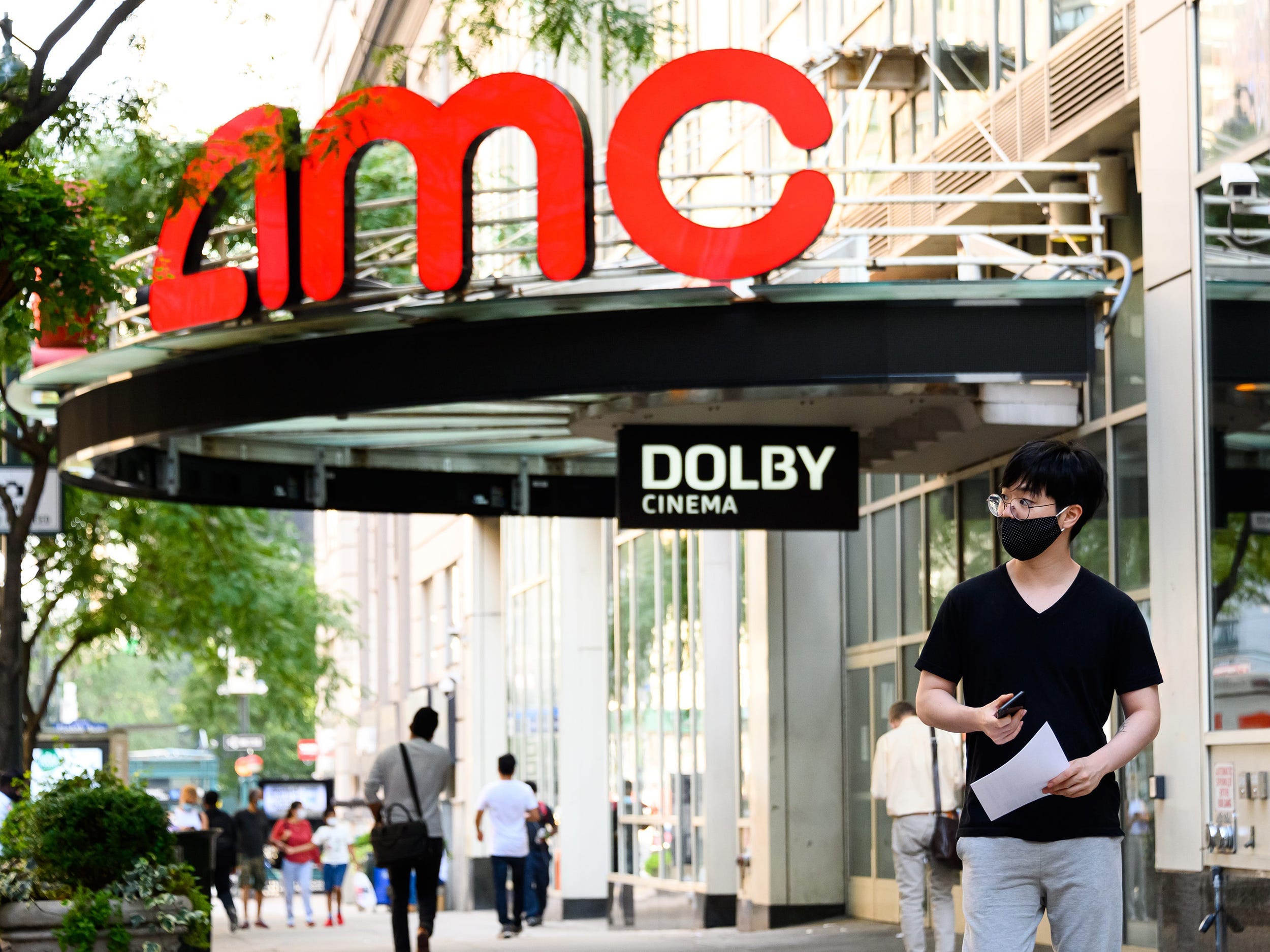
- AMC Theatres just had its busiest weekend of the pandemic as Americans head back to the movies.
- The company says more than 2 million people visited its US theatres between Thursday and Sunday.
- "F9: The Fast Saga," with the biggest US opening weekend of any movie since 2019, drew many viewers.
- See more stories on Insider's business page.
AMC Theatres just had its busiest weekend of the pandemic as reduced coronavirus restrictions bring more Americans back to the movies.
More than 2 million people watched movies at the chain's US locations between last Thursday and last Sunday, according to a press release issued Monday.
"The big screen is back!" said Adam Aron, CEO & President of AMC Theatres, in the release. "The combination of widespread vaccination and the release once again of blockbuster movies is proving to be the magic formula for the return of moviegoing."
AMC, which is the world's largest movie theatre operator, also posted its highest attendance in IMAX, Dolby Cinema and Prime since reopening.
The company credited "F9: The Fast Saga" with attracting much of the weekend's attendance. The latest film in the "Fast and Furious" franchise racked up $70 million in its opening weekend across the US. That's the biggest US opening weekend for any movie since "Star Wars: The Rise of Skywalker" in 2019, according to the release.
Globally, "F9" has raked in more than $400 million at the box office.
More than 500,000 people also visited AMC locations in Europe and the Middle East over the weekend, marking another pandemic record for the chain, according to the release.
The busy weekend is a reassuring sign for the company after it posted huge dropoffs in attendance and revenue in the early months of the pandemic. In the third quarter of 2020, AMC posted a 97% decrease in US ticket sales year-over-year, as well as a pretax loss of $901 million.
The company warned in October that it was in danger of running out of cash by the end of 2020 or early 2021 if viewership didn't bounce back faster, citing a reduced slate of new movie releases.
